4-minute read
It’s no secret that insurance premiums for hotels are soaring. Some hospitality businesses are seeing year-over-year increases in the double digits, making it harder to maintain profitability, reinvest in the property, or even stay competitive.
Data from CBRE indicates that in 2023 alone, insurance costs for hotels surged by 19.5% compared to the previous year.
This trend is the result of a combination of factors, including the increasing frequency of natural disasters, supply chain disruptions, and rising construction costs.
The impact of these rising costs is particularly pronounced in regions susceptible to environmental hazards.

For instance, hotels in the Mountain/Pacific and Southeast areas, which are more prone to events like wildfires and hurricanes, have experienced higher insurance expenses per available room.
While market conditions out of their control play a role, there are steps hotel owners can take to push back against these rising costs.
The key? Taking a proactive approach to how your insurance is structured, marketed, and renewed.
Three Steps to Take Control of Your Insurance Costs
Even in a tough market, hotel owners aren’t powerless. Here are three key strategies that can help keep premium increases in check.
1. Get in Front of the Renewal Process
Many businesses start looking at their renewal 30–60 days before their policy expires, but that’s often too late. Insurers have already set their pricing assumptions, and rushed submissions don’t get the attention they deserve.
Instead, start the renewal process 90 days out. This gives underwriters time to:
- Fully assess your risk, rather than applying default rate increases.
- Consider new or improved safety measures you’ve implemented.
- Compete for your business, instead of treating your renewal as a formality.
Getting ahead of the process puts you in a stronger negotiating position and can lead to more competitive pricing.
2. Shift the Conversation to Risk Management
Hotels that demonstrate strong risk management practices are often rewarded with better rates, but only if those efforts are effectively communicated to insurers.
Some areas that underwriters consider favorably include:
- Loss control programs. These include preventative maintenance, equipment checks, and property inspections.
- Employee training. Think slip-and-fall prevention, workplace safety, and guest interaction protocols.
- Cybersecurity measures. What have you done to protect guest data and payment systems from breaches?
- Incident response plans. This is all about how quickly and effectively issues are handled to prevent costly claims.
If these programs are in place, they need to be documented and presented clearly to underwriters. Otherwise, insurers may default to viewing your property as a standard, high-risk exposure.
3. Make the Market Work for You
Too often, businesses accept their renewal offer without question. But in a challenging market, shopping coverage strategically can make a real difference.
It’s worth exploring:
- Alternative carriers. Not all insurers view hospitality risks the same way. Some specialize in hotels and may offer better terms.
- Policy structure adjustments. Adjusting deductibles, limits, or self-insured retentions may help reduce costs without sacrificing critical coverage.
- Group purchasing options. Some hotels may benefit from joining industry risk pools or group insurance programs for better pricing leverage.
While rate increases may be unavoidable in some cases, having options — and knowing how to navigate them — ensures you’re getting the best possible outcome.
Final Thoughts
The hospitality industry will likely continue facing insurance cost pressures, but hotel owners do have options to mitigate the impact. By taking a proactive, strategic approach to renewals, risk management, and coverage negotiations, hotel owners can better control their costs.
The Mahoney Group, based in Mesa, Ariz., is one of the largest independent insurance and employee benefits brokerages in the U.S. For more information, visit our website or call 877-440-3304.
This article is not intended to be exhaustive, nor should any discussion or opinions be construed as legal advice. Readers should contact legal counsel or an insurance professional for appropriate advice.
